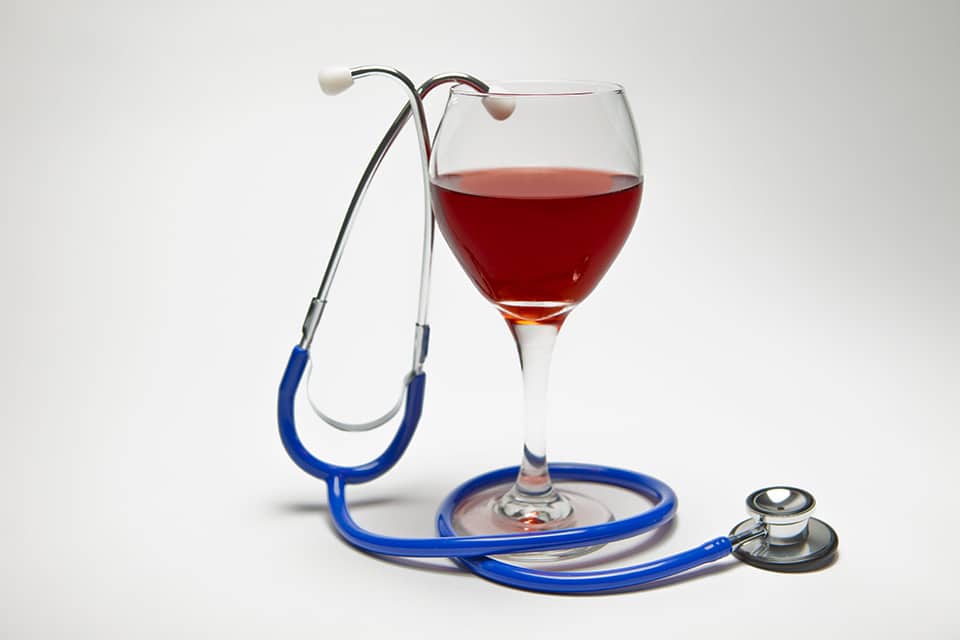For decades, the answer to the question: “Is alcohol good for you?” brought mixed answers. Medical and scientific experts seemed to agree that while alcohol consumption (particularly excessive consumption) can be detrimental to most elements of our health, small amounts of alcohol may have positive benefits – at least for heart health.
That was, until the World Heart Federation announced that following an extensive review of the available data for the past several decades, they conclusively determined that no amount of alcohol is good for the heart.
Per Beatriz Champagne, chair of the advocacy committee that produced the report for the WHF:
"We decided that it was imperative that we speak up about alcohol and the damages to health, as well as the social and economic harms, because there is an impression in the population in general, and even among health care professionals, that it is good for the heart. It is not, and the evidence has increasingly shown that there is no level of alcohol consumption that is safe for health."
What changed? Why did we think alcohol is good for the heart?
Alcohol’s supposed positive effects on heart health have been touted by countless sources for decades. The crux of these “benefits” centered around the claim that small amounts of alcohol – in particular, red wine – can be beneficial for the heart. This conclusion was based largely on research that suggested alcohol raises HDL (a.k.a., good cholesterol) levels and that resveratrol, an antioxidant found in grapes, has heart-protective properties.
More recent research, however, suggests that these benefits were erroneously attributed to drinking small amounts of alcohol. In reality, those who only drink minimal amounts of alcohol also tend towards other healthy habits, including getting plenty of exercise, eating a healthy diet, and avoiding bad habits such as smoking.
The known dangers of drinking alcohol
Just about everyone knows that heavy drinking leads to negative health consequences. Excessive alcohol consumption causes inflammation and scarring of the liver, as well as increased blood pressure and damage to heart muscle.
Heavy drinking can also lead to multiple different types of cancer, including cancer of the mouth, pharynx, larynx, esophagus, breast, liver, colon, and rectum – and that risk increases almost exponentially when users combine alcohol with tobacco use and poor diet. It’s also important to remember that alcohol abuse and addiction also affects families, friends, and communities.
Some of the most alarming stats stemming from alcohol use include:
- Alcohol plays a role in as many as 1 in 3 cases of violent crime.
- In 2020, 11,654 people died in alcohol-impaired driving traffic deaths — a 14% increase from 2019.
- The CDC estimates the total economic cost of alcohol use disorder to be about $249 billion per year – mostly in lost productivity, healthcare costs, and criminal justice expenses.
But moderate alcohol use isn’t without risk either. Even small amounts of alcohol can disrupt sleep and negatively interact with a variety of medications, including antidepressants, anticonvulsants, anticoagulants (like warfarin), and statins.
What recent research says about alcohol consumption (even small amounts) and our health
Heart Health
Studies show that even moderate alcohol use can increase the risk of cardiovascular disease, including coronary disease, stroke, heart failure, hypertensive heart disease, cardiomyopathy, atrial fibrillation, and aneurysm. What’s more, alcohol is a source of excess calories, frequently contributing to obesity – and the long list of health problems that accompany it.
Brain Health
Alcohol interferes with the brain’s communication pathways, affecting the way the brain works – and, over time, even the way it looks. In the short term, alcohol impairs the areas of the brain responsible for controlling balance, memory, speech, and judgment, resulting in more risk-taking behavior and a higher likelihood of injuries and other negative consequences.
Chronic heavy drinking actually alters neurons and white matter, the tissue responsible for facilitating communication between the brain and body. These changes begin to compromise the brain’s ability to function properly and often drive users to misuse alcohol even more, leading to alcohol use disorder (AUD). Alcohol use is particularly damaging to adolescent brains, altering brain development and potentially resulting in long-term changes to both the structure and function of the brain.
What to do if you think you may have a problem with alcohol
If you think you or a loved one might have a problem with alcohol use but you’re not sure, you can take our alcohol addiction self-assessment. You can also call us and speak with one of our intake specialists any time, day or night, at 800.388.4601.
Enterhealth offers a wide range of solutions to help. Whether you just need a little help to prevent your drinking from getting out of hand or you feel you need the full support of inpatient rehab, we have the right treatment option(s) for you.
We offer comprehensive, evidence-based rehabilitation services at our inpatient rehab facility in Van Alstyne and at our outpatient center located in the Park Cities neighborhood of Dallas. This includes:
- Medically assisted withdrawal (medical detox)
- Individual counseling
- Group therapy
- Family therapy sessions
- Intensive Outpatient Programs (IOP)
- Supportive Outpatient Programs (SOP)
- Maintenance Outpatient Programs (MOP)
- Medication management
Call us toll-free at 800.388.4601 or fill out our contact form today to discover how we can help you or someone you love.




